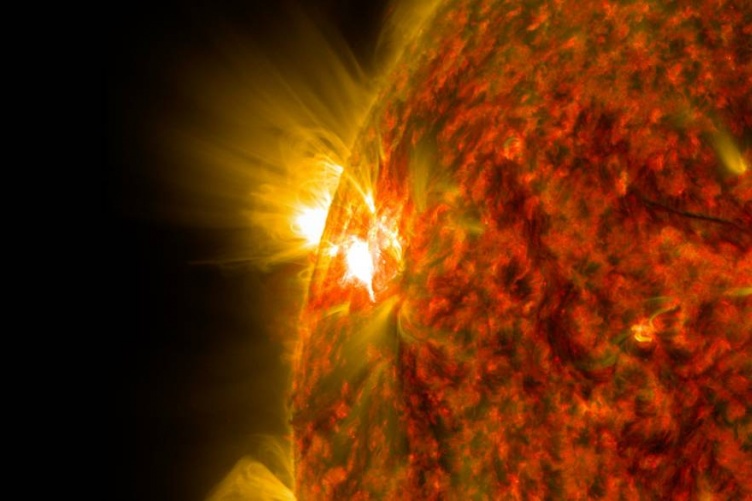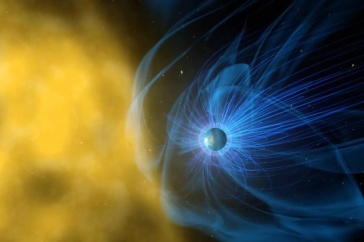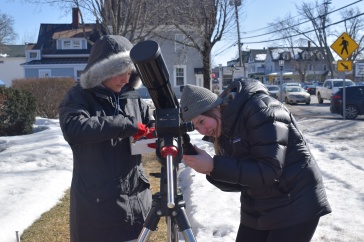
Image: NASA/SDO
Sometimes the best things come in small packages, including the ones destined for space.
UNH researchers will optimize the design of a compact, relatively simple space instrument to measure protons in the solar wind. Their project was selected for a $50,000 mini award by N.H. NASA EPSCoR within their research and infrastructure development cooperative agreement.
UNH has a history of building cutting-edge space instruments that help scientists learn more about the sun and the composition of the plasma it emits, but the equipment tends to be very complex — which often means they are massive, expensive, and very heavy. Scientists like Noé Lugaz, a research associate professor in the UNH Space Science Center and the lead PI on this project, who want to study just one component on the solar wind — the protons — need a more streamlined instrument. This grant will enable Lugaz to begin preliminary design of such an instrument, called a compact electrostatic analyzer (CESA).
“As small launchers and rideshare opportunities develop and as NASA launches instruments for space science and space weather research, there is an advantage for UNH to have a complete design for a relatively light and inexpensive instrument,” explains Lugaz. “We just need something to characterize the proton population in the solar wind, and this CESA will help us to measure that. This would complement more complex instruments such as the Heavy Ion Sensor on Solar Orbiter that are able to study the composition of the solar wind”
Lugaz will collaborate with Toni Galvin, the director for N.H. Space Grant and N.H. NASA EPSCoR, David Heirtzler, a UNH research project engineer, and others from the UNH Space Science Center to develop the design over the course of 2021.
The Institute for the Study of Earth, Oceans, and Space (EOS) is UNH's largest research enterprise, comprising six center with a focus on interdisciplinary, high-impact research on Earth and climate systems, space science, the marine environment, seafloor mapping, and environmental acoustics. With more than $60 million in external funding secured annually, EOS fosters an intellectual and scientific environment that advances visionary scholarship and leadership in world-class research and graduate education.
-
Written By:
Rebecca Irelan | Institute for the Study of Earth, Oceans, and Space | rebecca.irelan@unh.edu | 603-862-0990
















































